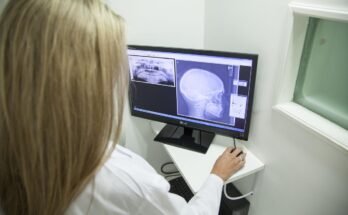Introduction
Today in computer is one of the most important tools that humanity has ever created. It has changed the way people live think and interact with the world. From education to medicine from communication to industry computers have touched almost every aspect of life. Their presence is on widespread that imagining a world without them is nearly impossible.
Who is the inventor of the computer?
The of the computer is the result of contributions from many minds however
Charles Babbage is often remembered as the father of the computer because in the 19th century he designed the analytical Engine a machine that introduced the basic principles of computation and programmability.
What’s a computer?
A computer is a digital machine that processes information. It receives input performs operations according to Instruments and produces output in a form that can be understood or stored for future use.
Definition of computer
A computer can be defined as a programmable electronic device that executes a series of instructions to process data perform calculation and present information accurately and quickly.
When did the foundation of computers Begin?
The earliest foundation was laid in the 1800 with mechanical calculating devices. But the modern foundation of computers began during world war li when electronic machines like the ENIAC and Colossus were created in the 1940.
Who Used It First?
At first computers were not available to the public.
They were used by government armies and scientist to solve problems in Cryptography military planning and advanced scientific.
The Stages it Has Gone Through
Computers have evolved in stages known as generations
1. Farst Generation based on vacuum tubes.
2. Second Generation Built with transistors.
3. Third Generation Used integrated circuits.
4. fourth Generation introduced microprocessors.
5. fifth Generation Current and future computers with Al and quantum technologies.
How Many Types Does It Have?
Computers are found in many forms including
. Supercomputer the most Powerful machines
. Mainframes large systems for organizations
Minicomputers medium sized systems
Personal Computers desktops and laptops
. Mobile Devices tablets and smartphones
Embedded Computers found inside machines like care, TV and appliances.
Important point to known About computers
. They combine Hardware and Software
. Their processing power has increased dramatically over the decades
. Storage capacity has grown from megabytes to terabytes and Beyond
The internet has turned computers into global communication tools.
The Levels It Has Passed Through
From huge machine that required entire rooms computers have become small and portable.
At the same time they have grown more powerful faster, and smarter, moving from simple calculators to intelligent devices.
The Latest Maintenance Upgrades
Modern maintenance and upgrades include
Security upgrades for protection against cyber threats.
Use of solid state drives SSD for speed and reliability
Cloud computing for flexible Storage and sharing
Al based features in everyday applications
The Challenges and Difficulties Faced computers face Challenges such as
1, Cybercrime including hacking and date theft
2, Expensive Costs of cutting edge technology
3, Electronic west harming the environments
4, Human dependence on machines reducing creativity
The Benefits of Computers
Computers bring countless benefits
1, Quick access to unlimited information
2, Educational opportunities through digital learning
3, Medical progress through advanced technologies
4, Better communication and global connections
5, Improved efficiency in businesses and industries
The Disadvantages of Computers
Some negative impacts also exist
. Healthy problems like eye strain and poor posture
. Loss of Jobs due to automatic
. Addiction to screens and social media
. Security risks and privacy concerns
The Main Uses of Computers
Education Online courses digital research and learning tools
Business Accounting banking and e commerce
Healthcare Patient records digital diagnostics and surgeries
Science Space research weather forecasting and experiments
Entertainment Gaming streaming and creative arts
Communication Messaging video calls and social networking.
Conclusion
The computer is more than a machine it is a drive of progress and innovation
It has revolutionized education medicine business and communication.
While disadvantages and risk exist benefits of computers are far greater.
As technology continues to advance computers will remain at the center of human development shaping the future of societies across the world.

